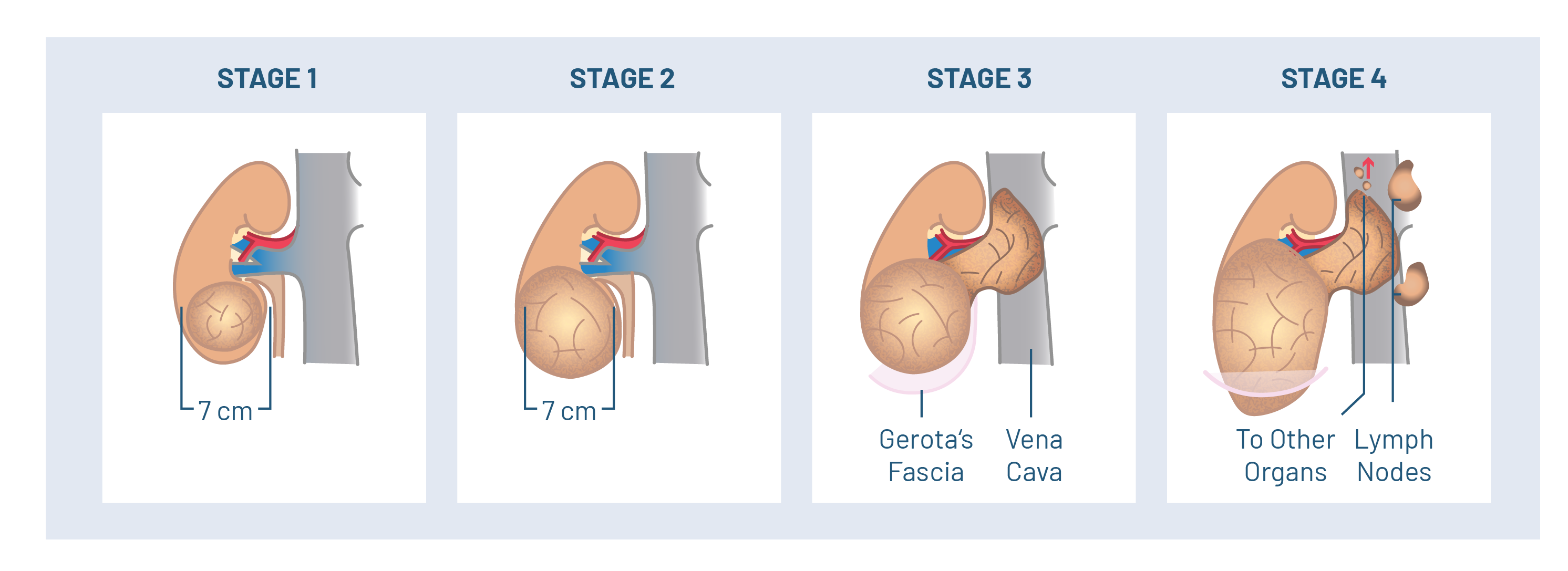Kidney Cancer
Kidney cancer, also known as renal cancer, is a disease that starts in the kidneys. It happens when healthy cells in one or both kidneys grow out of control and form a tumour. In adults, renal cell carcinoma is the most common type of kidney cancer.
Signs and Symptoms
Many kidney cancers are detected incidentally during imaging for unrelated conditions as early stages often do not cause symptoms. When symptoms are present, they may include:
- Blood in the urine
- Persistent back pain just below the ribs
- Unexplained weight loss
- Fatigue
- Intermittent fever
Clinical Progression
Kidney cancer typically begins as a small tumour that grows larger over time. If not caught early, it can spread (metastasise) to other parts of the body, including the lymph nodes, lungs, bones, liver, or brain.

Prevalence
Kidney cancer is a significant health concern in Europe, with approximately 600,000 people across Europe currently living with kidney cancer, based on estimates by EUROCARE-6 and the European Cancer Information System and with over 130,000 new cases diagnosed annually. With around 90% of kidney cancer cases in Europe, renal cell carcinoma (RCC) represents the majority of these cases.
The prevalence and incidence rates vary across Europe, with higher rates generally observed in Northern and Eastern Europe. Factors such as regional healthcare access, lifestyle, environmental exposures, and demographic differences are believed to contribute to the variations in incidence and survival rates.
Survival rates have improved in recent years, with a 5-year survival rate of approximately 60%, though this varies based on factors such as early detection and healthcare access. Mortality rates remain high, with nearly half of patients facing fatal outcomes.
Statistically, approximately 1 in 76 people in Europe will be diagnosed with kidney cancer at some point in their lifetime, though this risk is slightly higher in men than in women. Key risk factors include smoking, obesity, hypertension, and certain genetic predispositions. As populations in Europe continue to age, the number of individuals diagnosed or living with kidney cancer and other cancers is expected to grow, emphasizing the need for regional strategies in cancer prevention, treatment, and support for long-term survivors.
